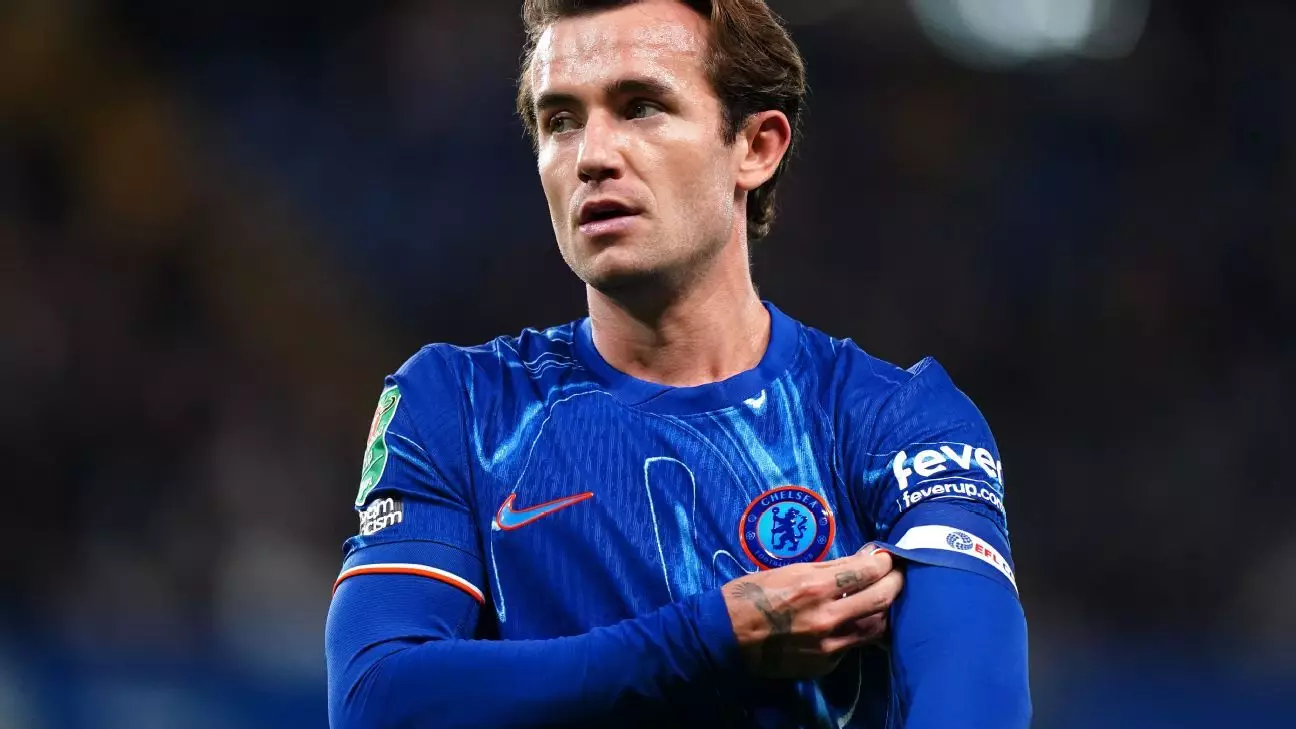Enzo Maresca’s controversial decisions regarding Ben Chilwell have stirred substantial debate within Chelsea’s fan community. Maresca, who assumed coaching responsibilities last summer, has expressed his sentiments about Chilwell’s situation, revealing a mix of professional obligation and personal empathy. With only one appearance to his name this season, it is evident that Chilwell’s role at Chelsea has dramatically shifted. The Argentine coach has contended that while he recognizes Chilwell’s talents and professionalism, his current tactical vision does not encompass the English full-back. The stark contrast between the player’s previous contributions—over 70 Premier League appearances—and his current lack of game time raises questions about managerial vision versus player potential.
Chilwell, at 28, is at a pivotal stage in his career where regular playing time is paramount for both personal development and national team aspirations. Maresca’s acknowledgment of feeling “shame” regarding Chilwell’s treatment underscores a layered emotional aspect to the situation—one that affects not just team dynamics but individual morale. When a player of Chilwell’s caliber finds himself sidelined, the impact reverberates beyond the pitch. It can lead to diminished confidence and a sense of being undervalued, which ultimately affects a player’s future, including potential transfer opportunities. The departure of players who are not receiving adequate playtime seems inevitable when they seek fulfillment elsewhere.
Maresca’s assertion that the exclusion of Chilwell is rooted in his tactical preferences poses an intriguing perspective on modern football strategies. His preference for players like Malo Gusto, Reece James, or Marc Cucurella demonstrates a shift towards specific defensive roles that demand versatility. This leaves little room for a traditional full-back model, which is essentially what made Chilwell successful in the past. By dismissing Chilwell’s capabilities to perform varied roles, Maresca risks overlooking a valuable asset that could adapt under different conditions. This contrasts sharply with the more flexible styles practiced by many contemporary managers who thrive on the adaptability of their squad members.
As Chelsea languishes without a win in their last five league matches, the spotlight increasingly falls on Maresca’s decisions. Facing Bournemouth in an upcoming fixture adds urgency to the situation. The coach needs to find not only a solution to the defensive strategy but also reconcile his staff’s choice with the players’ aspirations to maintain team morale. With Chilwell’s potential trade rumors hanging in the air, the specter of lost talent looms large. Recognizing and maximizing every player’s potential, especially those who have previously lifted titles and contributed significantly to the team’s successes, might prove crucial in restoring Chelsea’s competitive edge.
Ultimately, Maresca’s management philosophy will be tested both on the tactical front and the interpersonal aspect, making this an intriguing narrative as the season unfolds. The resolution of Ben Chilwell’s predicament may very well serve as a litmus test for Maresca’s tenure as Chelsea’s head coach.

